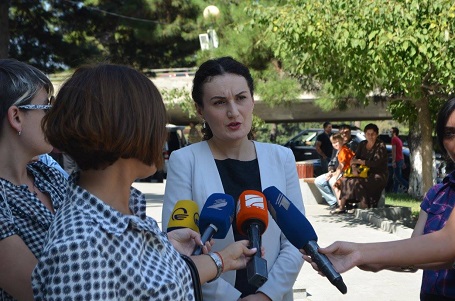Georgia’s Reconciliation Minister: “Dialogue will ensure a better future for Georgia, Abkhazia, Tskhinvali”

On this day eight years ago Russia defied the world and recognised Georgia’s two regions of Abkhazia and Tskhinvali (South Ossetia) as independent republics.
This move came shortly after the brief but violent Russia-Georgia War in August 2008.
Today Georgia’s Minister of Reconciliation and Civil Equality, KetevanTsikhelashvili, responded to the date and stressed Abkhazia and Tskhinvali were integral parts of Georgia and Russia’s attempts to gain international recognition for the two regions "have dramatically failed”.
Almost the entire international community supports Georgia’s sovereignty and territorial integrity. Two nations in the Pacific, Vanuatu and Tuvalu, revoked their recognition of the two regions as independent states,” Tsikhelashvili said.
- Russia and Nicaragua recognised Abkhazia’s independence in 2008 in the wake of the Russia-Georgia war.
- In 2009 Venezuela, Vanuatu, Nauru and Tuvalu took the same step.
- After several years Vanuatu and Tuvalu revoked this recognition and now declare Abkhazia and Tskhinvali are integral parts of Georgia.
The Minister said there was one issue more important than Russia’s failure of its recognition policy:
It’s time when we – Georgians, Abkhazians and South Ossetians – should understand that what we have experienced, this war and conflicts and current continued occupation and unresolved confrontations, does not serve the interests of either of us,” Tsikhelashvili stated.
She noted the euphoria arising from the two regions being regarded as independent states had "almost vanished” among the majority of Ossetians and Abkhazians, and now growing numbers of people in the two occupied regions had some other feelings.
Instead there is now a fear that they’ll lose their identity and become part of Russia.
So we should look to a better future that can only be ensured through dialogue, reconciliation and building of trust. This is the major policy line of the current Georgian Government,” stressed Tsikhelashvili.
- The Russia-Georgia war lasted five days and following this armed conflict 228 Georgian civilians, 170 soldiers and 14 police officers had lost their lives.
- The war displaced 192,000 people in Georgia. Many were able to return to their homes after the war but as of May 2014 more than 20,200 people remain displaced.
 Tweet
Tweet  Share
Share